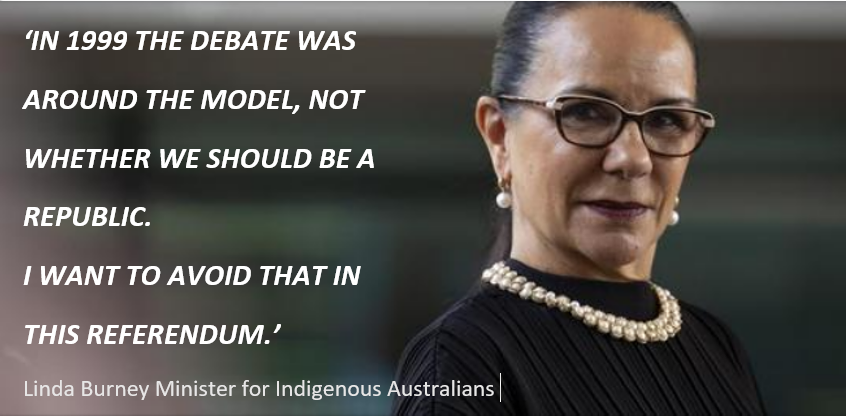
Many explanations are offered for the simple and obvious fact that in voting in the 1999 republic referendum, notwithstanding the overwhelming view of the elites, the Australian people accepted the argument put by the NO case, drafted by ACM.
They preferred to keep our crowned republic than accept the Turnbull-Keating politicians’ republic.
After losing the referendum, many republicans blamed John Howard, claiming untruthfully that he had rigged the question as well as the constitutional convention.
But as John Howard explains in an interview recorded on Monarchy Australia, the question was all the republicans’ work. John Howard did not choose it. And it was approved by a Parliamentary Committee, and then the House of Representatives and the Senate in each of which there was an overwhelming republican majority.
ACM had sought an amendment to the question at a hearing of the Parliamentary Committee. ACM argued that it was crucial that the people be told, in the question itself, not only how the president would be appointed but the unique way in which the president could be dismissed by the prime minister. Unlike any other republic, the prime minister could do this without notice, without grounds, and without any right of appeal. This was not accepted.
A frequent plaintive call by republicans after the referendum was that the question should have been no more than this: “Are you in favour of Australia becoming a republic?” That would have circumvented the practice in Australian referendums of using the long title of the bill to change the constitution. Moreover, it would have been confusing as many observers and political philosophers argue that Australia is already a republic, a crowned republic.
Such a question would have effectively been: “Please sign this blank cheque for a republic. Don’t worry about the details.”
What Ms Burney seems to be proposing for the referendum on an indigenous voice is to give Parliament the power to determine all the details of the Voice.
“ Anthony Albanese’s Indigenous Referendum would thus ask Australians only if they want an Aboriginal and Torres Strait body enshrined in the Constitution and will avoid recommending a model on the ballot paper, in a move to prevent a repeat of the contentious debate over detail that sank the 1999 republic vote’’, reported Ellie Dudley and Paige Taylor in The Australian on 8 July 2022.
They add that Indigenous Australians Minister Linda Burney told them that a referendum on the voice should not be about what the proposed body would look like in fine detail, a win for Aboriginal advocates who fear a complicated referendum question will doom decades of work towards constitutional recognition.
They say the government’s move to avoid a detailed voice model on ballot papers comes after Aboriginal leader Pat Turner warned last month that voters will vote down the referendum without clear detail of what constitutional change will practically mean.
Ms. Burney said she wants to avoid a repeat of the failed republic referendum when Australians were required to vote on a two-part question that asked how a president should be chosen.
“What happened with that referendum was that instead of the question being ‘Should Australia be a Republic?’ or something like that, it became about the model,” Ms. Burney said.
“So the debate was around the model, not whether or not we should be a republic. And I want to avoid that in this referendum … I think it’s really important that the question be about whether there should be a voice, not about what sort of voice it will be.”
Ms. Burney indicated Labor may not settle on the details of the proposed voice’s structure before a referendum.
“I don’t know having a detailed model out there would lead to a clean question about what should be observed in the Constitution,”
Ms. Burney said.
Whatever the wording of the indigenous voice referendum, it is clear that ACM’s proposal to summarise both the appointment of the proposed president and his or her dismissal should have been included in the question on the 1999 referendum ballot paper. Blank cheque trick referendums should make voters suspicious of the Yes case.
[ David Flint]
